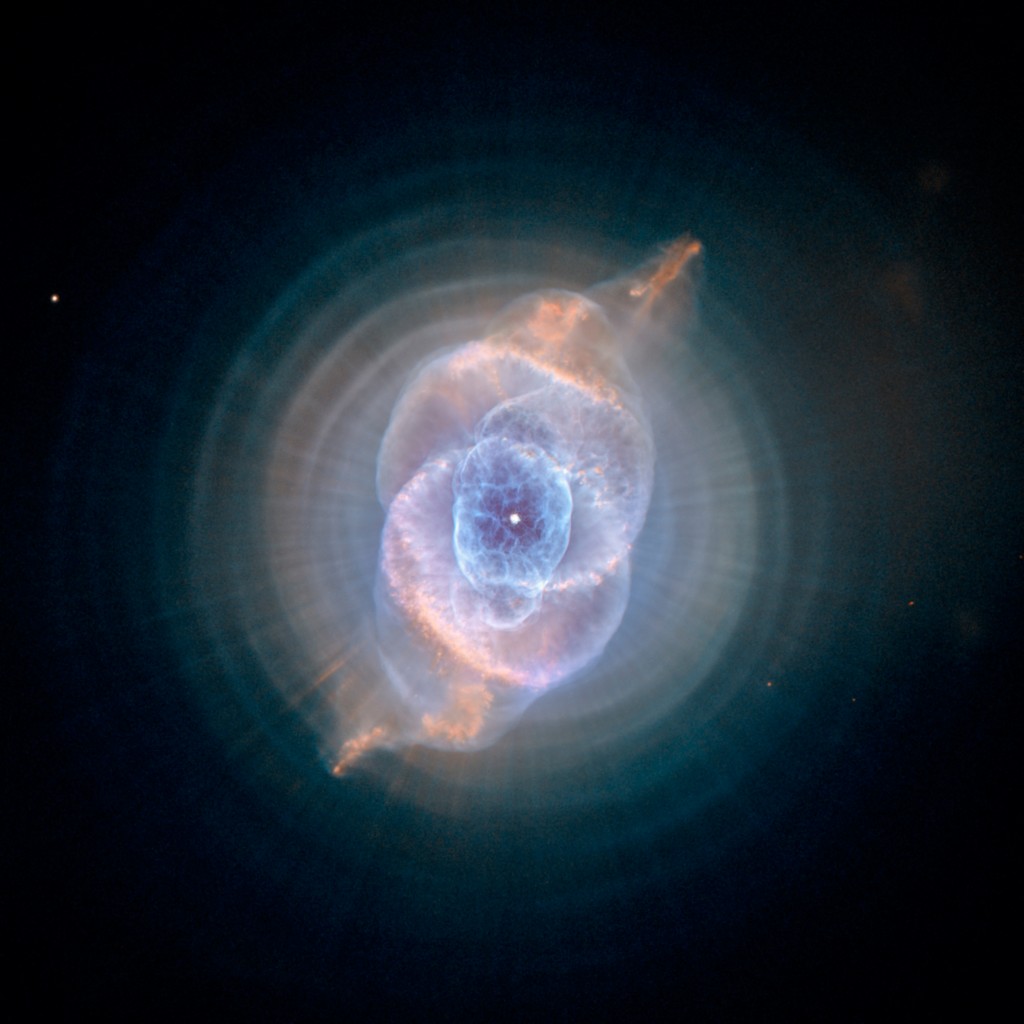
Credit: NASA, ESA, HEIC, and The Hubble Heritage Team (STScI/AURA) Acknowledgment: R. Corradi (Isaac Newton Group of Telescopes, Spain) and Z. Tsvetanov (NASA)
I’ve recently been reading work by the late Israeli-American mathematician, statistician, and historian of science Amir Aczel (d. late 2015, of cancer), who is probably best known for his bestselling 1997 book Fermat’s Last Theorem.
Here’s a passage from Amir D. Aczel, Why Science Does Not Disprove God (New York: Willam Morrow, 2014), 144-147:
The idea is that there are many things that we do not understand about our universe: its parameters seem to be too “fine tuned” to have arisen by chance, and since all their values are set at the exact levels required for our existence, there “must be” other places — other universes — where these parameters are not right.
Basically, to avoid the necessity of “creation” — which begs to be acknowledged as a possibility in a universe that seems almost “too perfect” in its ability to support life — these physicists take the following view: if we are here, and the parameters need to be perfectly chosen for us to be here, then surely there must be infinitely many other places where the parameters are wrong. We are here because we can only live where the conditions are right for our existence. . . .
New Atheists have embraced the multiverse idea — speculative as it may be — because it appears to do away with a creator. To them, the laws of physics and mathematics lead to the creation of a universe out of nothing; and if this can happen once, then it can happen again and again, hence the possibility of even an infinite number of universes. And if infinitely many universes exist, ours is of infinitesimal importance and so perhaps would have required no divine powers to create. But an alternate argument says that if many, perhaps even infinitely many, universes exist, then whatever created them must be much more powerful than anything we’ve ever contemplated before. In any case, we can only observe one universe.
The worst feature of the multiverse theory is that it is non-parsimonious. It is a model that — like Ptolemy’s ancient theory about the solar system with its cycles and epicycles, so decisively smashed by Copernicus — has too many free parameters. In fact, an infinite multiverse has infinitely many parameters. There must be parameters to describe each of these infinitely many other universes that are supposed to somehow exist out there. The infinite multiverse would never pass any Einstein test for elegance or simplicity. And nature tends to be captured best by models that are both. . . .
The main problem with the multiverse is that there is absolutely no way in which we can validate such theories through experimentation or through any data obtained or derived from the real world. And an infinite multiverse invokes mathematical principles that are unlikely to apply to real physical phenomena. Either hypothesis — God exists, or God doesn’t exist — remains undecided when we assume a multiverse. A multiverse only makes the needed creator omnipotent on a much vaster scale.
Posted from San Diego, California











